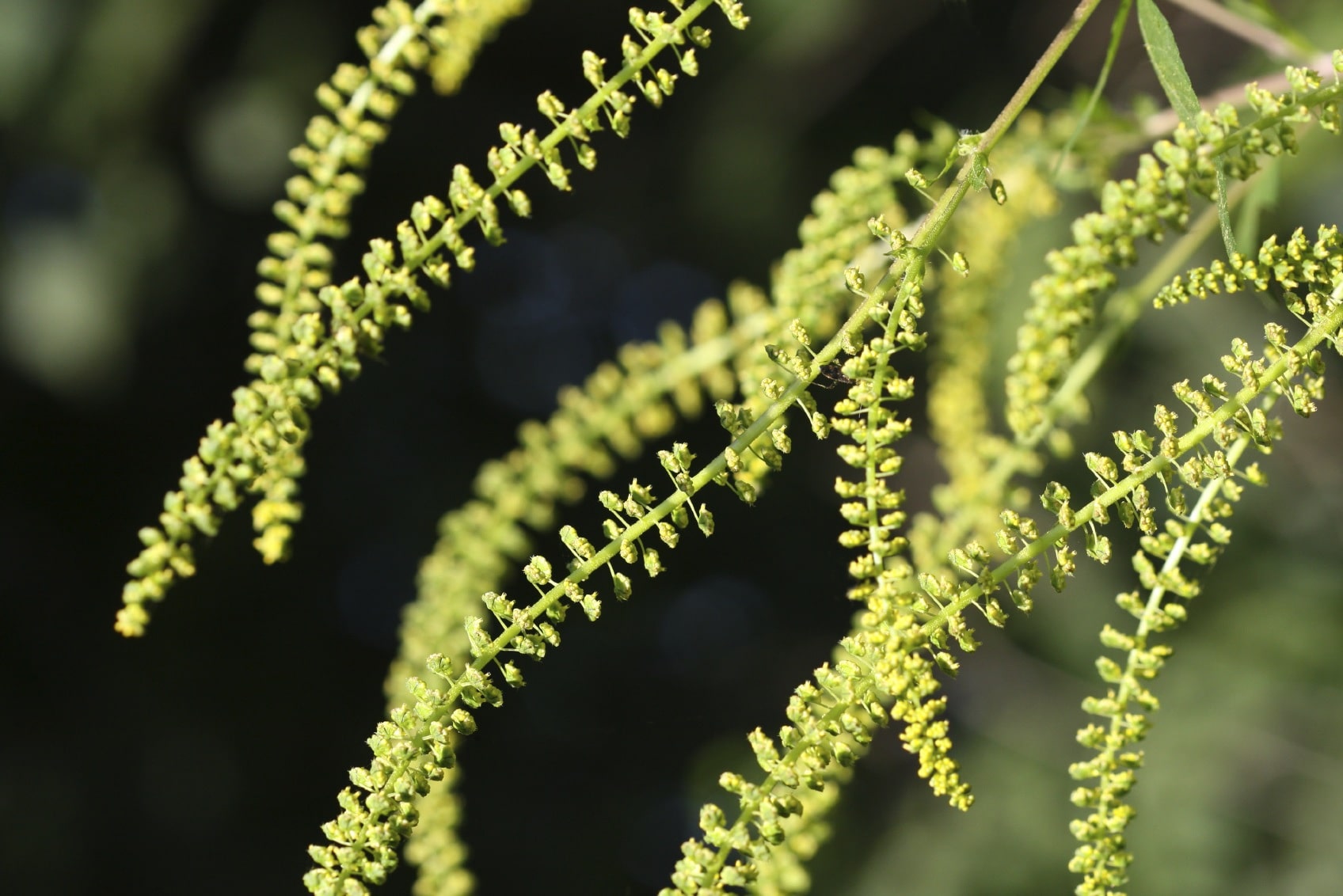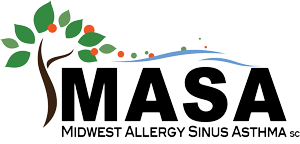Ragweed Pollen: Coming Soon to a Place Near You!

During the Fall months, ragweed pollen assumes center stage as the primary foe for hay fever sufferers. Hay fever, also known as allergic rhinitis, is triggered by airborne allergens, such as pollen. Symptoms include runny nose, congestion, sneezing, and watery/itchy eyes. Approximately 10-20% of Americans are sensitive to ragweed pollen as an allergy trigger.
Ragweed pollen makes its debut in early August and maintains its presence through October, or until the first hard frost. The lifespan of pollen may be less than two hours, but its ability to produce an allergic reaction continues indefinitely. Avoiding this star of the Fall allergy scene is the way to keep your nose in shape. Escaping ragweed pollen, however, can be a tall order.
Ragweed species make an appearance in every state, except for Alaska. The culprit is found along roadsides and in fields. The weed is even prevalent in urban areas, frequently growing in vacant lots. One ragweed plant can produce one billion pollen grains, and each grain can travel up to four hundred miles!
Fortunately, our audience of allergy sufferers is not without resources to deal with airborne allergens. The first step is identifying what you are allergic to. This can be done with a simple skin test in the allergist’s office.
After specific allergies are identified, monitoring pollen counts enables a patient to employ extra measures during times when counts are high. The National Allergy Bureau (NAB) provides the most accurate pollen and mold levels from more than 8-counting stations. They also offer free email alerts.
Pollen counts are different than pollen forecasts. Forecasts are a prediction based on previous years and weather. Counts are a measurement taken by an instrument over a twenty-four hour period and are reported for specific plants, such as weeds, trees, grasses, and mold spores. You can visit the NAB’s website at https://www.aaaai.org/global/nab-pollen-counts.aspx.
The American Academy of Allergy, Asthma, and Immunology offers the following tips to minimize your symptoms when counts are high:
-Keep window closed, and use air conditioning.
-Avoid being outdoors when pollen counts are high. Peak pollen times are usually between 10:00 AM and 4:00 PM. Counts are lower on windless, cloudy days and after a heavy rain.
-Keep car windows closed when traveling.
-Take a shower after spending time outdoors, as pollen can collect on hair, skin, and clothing.
-Don’t hang laundry outdoors to dry.
When avoidance strategies aren’t sufficient enough to bring down the curtain on bothersome symptoms, medication is available. Choice of medication depends on which symptoms are the most troublesome for the patient. Non-sedating antihistamines and saline nasal rinse can be found over-the-counter; other medications are available with a prescription. Medications currently available are both very effective and very well-tolerated.
For patients who prefer not to take a daily medication or who continue to have bothersome symptoms, immunotherapy is an option. This treatment is commonly done with allergy shots. This long-term therapy can significantly reduce the severity of an allergic response to allergens, such as ragweed.
An allergist can guide you through the process of determining your specific allergies, which avoidance measures are most helpful, and appropriate treatment options. Keep in mind that hay fever medications work best if started before the allergy season hits.
So, don’t let ragweed steal the show this Fall. Keep these tips and options in mind, and your season can be a class act!
Written by Dana Dalbak, PA-C.

Dana Dalbak, PA-C
Dana Dalbak, PA-C, is a certified Physician Assistant, graduating with a Master’s Degree from Central Michigan University. After placing in the tenth percentile on the National Physician Assistant Certification Exam, she traveled to Gambia, West Africa to complete the rest of her training. Upon practicing family medicine for five years in an underserved part of Michigan, where she has worked with Dr. Siri in Allergy and Asthma specialty care since 2007. She has been a wonderful part of the MASA family since its establishment in 2013.
View Dana’s full biography here.


